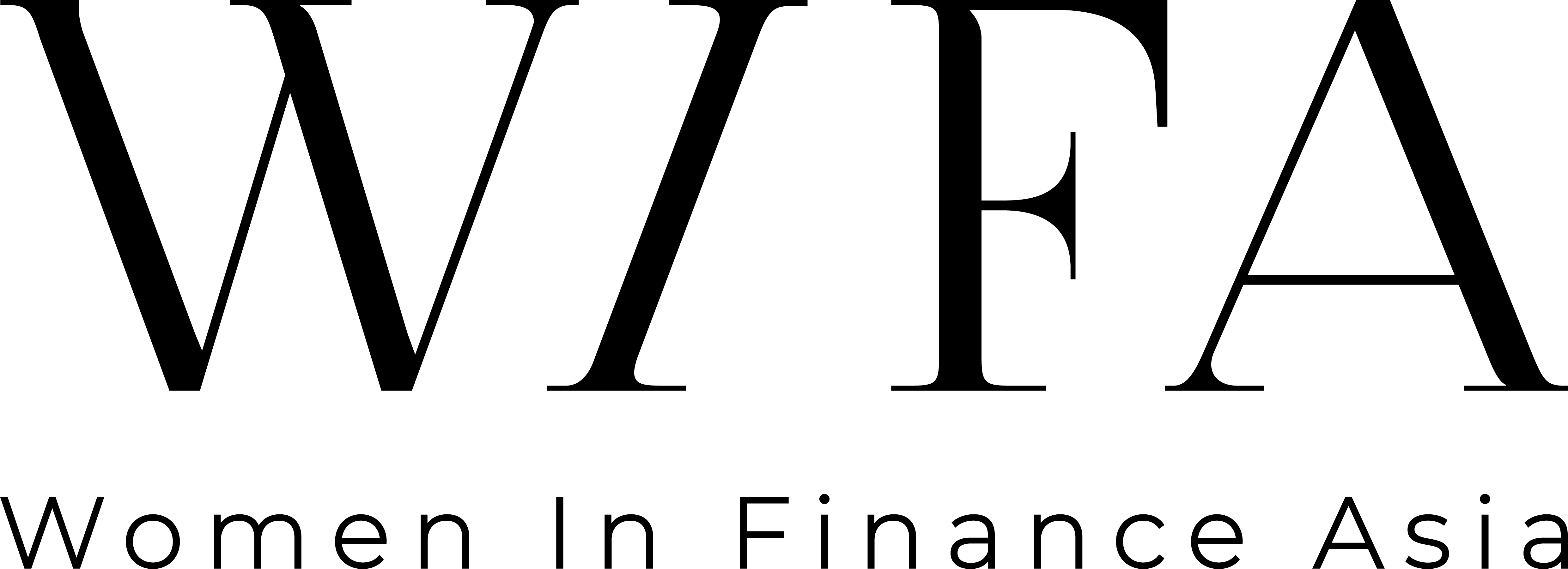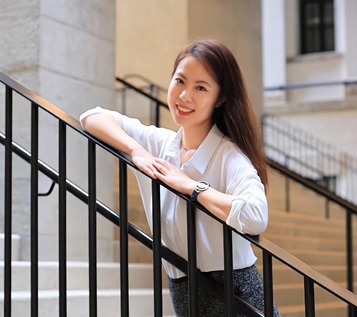Chidie Yang, Vice President, Global Markets, Goldman Sachs, shares with WiFA her mentorship experience, advice to her younger self, her passions, and much more.
Tell us a little bit about yourself
I’m what people would call a “GS baby”. I started out my career at Goldman Sachs and have been with the firm for a decade since. I first joined the Operations division and later moved to Global Markets, all the while working in the Hong Kong office. Time passes by very fast when you work in a dynamic environment and I’ve been fortunate to have worked with a myriad of inspiring people along the way. What I remember from each stage of my career so far is each role model who unknowingly influenced my way of thinking and ultimately shaped the person that I am today.
Mentors play an important role in the developments of many careers. Did you have a mentor? If so, what did you look for in that person?
I think of “mentors” in a broad sense, as people who have invested time imparting knowledge with me or changing my mindset and working style. The most memorable mentors are the ones I had in the beginning of my career, as they helped me build a strong foundation of technicality, self-sufficiency, grit, and growth mindset. Then, as I moved from team to team, I learned something new from each manager. Some taught me rigor and self-discipline, some focused on strategic and entrepreneurial thinking, and yet others showed me how to navigate the fine line around risk aversion and risk taking. I think of mentorship as an organic process: there will always be people who are good at something and also take an interest in your career, and it’s up to you to open up your mind and seize the opportunity to learn something from them.
Think back to when you were starting out your career. What advice would you give your younger self?
I think attitude is everything. Most people start out with a “can-do” attitude, which has come to be expected from all new joiners, but what really makes people stand out is an “I-got-this” attitude. Here’s the key difference: “can-do” is passive, it means that you are happy to help wherever and whenever, but you wait for people to call upon you. On the other hand, “I-got-this” is someone who takes a step back, invests the mental effort to make sense of the inner workings of the team, has an overall grasp of what the team needs, and takes measured steps to execute and deliver based on this foundational knowledge. “Can-do” people tend to do what’s expected of them, but “I-got-this” people will worry more about what else they can do to make sure everything goes well. When you start out in a new team, it’s easy to just be a spectator and follow the path that has already been laid out. However, it takes additional drive and power of will to care and worry. I personally wish that I had taken up more of an “I-got-this” attitude early on in my career. After all, “I-got-this” is an early form of thought leadership and what eventually grows into a CEO-mindset.
This year has brought tremendous upheaval and disruption to all aspects of our lives. How are you and your company continuing to promote diversity and gender equality despite these massive changes?
I have been fortunate to be an active member of both the Women’s Network and LGBTQ+ Network. Without a doubt, the pandemic has halted our flagship in-person events, but we were able to smoothly transition most programs to a virtual format, and created a continuous stream of content to promote visibility and awareness. Aside from that, the firm has been extremely supportive in terms of flexible work arrangements and wellness programs, and I think this created an important equalizing factor. The fact that the firm was able to perform in a decentralized setting further proved the fact that what really matters in order to succeed in a corporate setting is talent and know-how, and both of these factors are at their full expression when there is diversity across the organization.
Aside from work, what are your other passions?
I’ve always had a passion for animals and art, and when the pandemic started, so did my animal drawing project. Studying the anatomy of animals, experimenting with different techniques and color schemes, and finding the best way to express each animal’s liveliness and spirit is a very rewarding exercise in many ways. Besides being a great way to channel my creativity, it’s also an opportunity to hone my craft and see measurable progress through persistent endeavor. I think the process of developing a passion is a very important narrative and ritual in a person’s life. When you love what you do and you are good at doing it, it gives you a strong sense of self-actualization and control over your life, and sets the tone for other parts of your life, whether it be your career, your social life, or other projects. And especially during this pandemic period, it nourishes us with a sense of peace and optimism.

